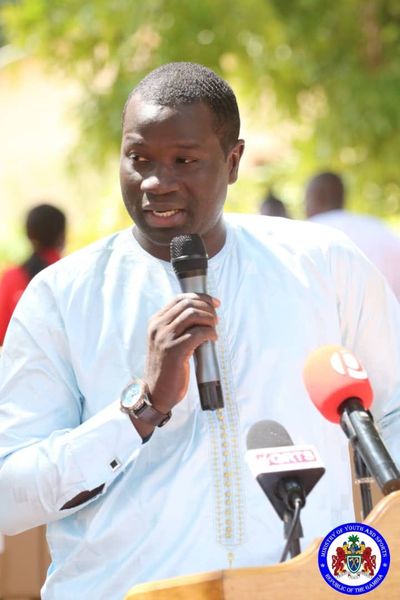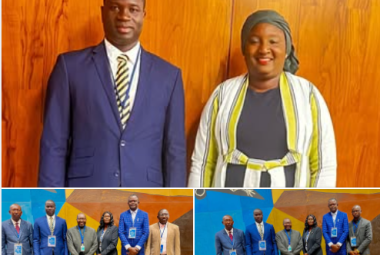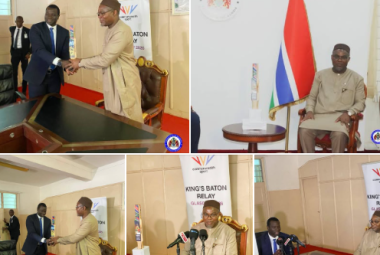The Minister of Youth and Sports, Bakary Y. Badjie, has said that government, through his ministry, is committed to ensuring more young people become job creators rather than job seekers. He made this remark on Saturday February 3rd, at the graduation ceremony of the 10th batch of Gambia Songhai Initiative (GSI).
The mix farming/agro-forestry training and production project, funded by the government, with support from UNDP, graduated 40 young people, 25 of whom are female and 15 male. They
completed the mandatory 12-month residential theory and practical training at the Gambia Songhai Initiative centre in Chamen, North Bank Region.
The Gambia Songhai Initiative aims to train youth, women, migrant returnees and the marginalized, on integrated
farming system, agro-forestry, poultry production management, animal husbandry, horticulture/ vegetable garden,
cash crop production, food processing bio gas and business planning and entrepreneurship.
Honorable Badjie revealed that since the UNDP partial funding ended in 2021, the Ministry has been using
its development budget to maintain the centre and training of young people.
This, he indicated, is a testament that youth empowerment, especially in agriculture, is a priority for the government.
“We are more motivated by the number of youths we meet after they graduate from GSI; as they narrate their
stories of how much the GSI benefited them and how it helped change their lives and those of their families,” he
further stated.
The Youth Minister urged the graduating students to make use of the several opportunities that government has
provided; such as the National Enterprise Development Initiative (NEDI) under his Ministry; Roots project under the Ministry of Agriculture; and Women Enterprise Fund (WEF) under the Ministry of Gender.
Giving a brief history of the project, Mr Mbye Saine, project coordinator of the Gambia Songhai Initiative said the
initiative came from Benin and was introduced in The Gambia through the support United Nations Development Programme (UNDP). Since its inception, he informed, the project graduated 600 young people, majority of whom are female. He affirmed that since 2018 the programme has been funded by Government of The Gambia through The Ministry of Youth and Sports with some support from UNDP.
Mr Mbye further informed that participants are drawn from all the seven regions, and that, it is about 50/ 50 gender ratio in terms of enrollment. He said feeding, accommodation, stipend, little start-up capital, continuous monitoring and coaching post-graduation, are all being taken care of. The initiative, he said came against the backdrop of irregular migration.
The Project Coordinator, commended the Ministry for the continuous support to the young people of The
Gambia and called on other donor partners to emulate UNDP.
Deputy Permanent Secretary Alhagie Nyangado, who was deputising for the Minister of Agriculture, reiterated
his ministry’s interest in supporting youth who venture into agriculture
“If you can produce enough food it wouldn’t be difficult to make a saving,” he opined.
He encouraged the graduands to make best use of the knowledge gained for the sustainable development of the
country.
Lamin Darboe, representative of UNDP Resident Representative, reaffirmed UNDP’s commitment to
supporting the Government of The Gambia through their various interventions to empower youth and women
to improve their lives and livelihood through their support to GSI, NYSS, and Youth Connekt at the NYC.
Mr. Darboe announced that out of the 40 graduating students,10 of the best will benefit from a grant worth one hundred thousand Dalasis (D100,000) for start-up capital to improve their productive and financial capacities, and help them navigate the transition from skills development to employment.
“To strengthen institutional capacity and support digitalization, UNDP accelerator lab provided 6 desktop
computers to the GSI for information, telecommunications and communication classes" Darboe revealed







